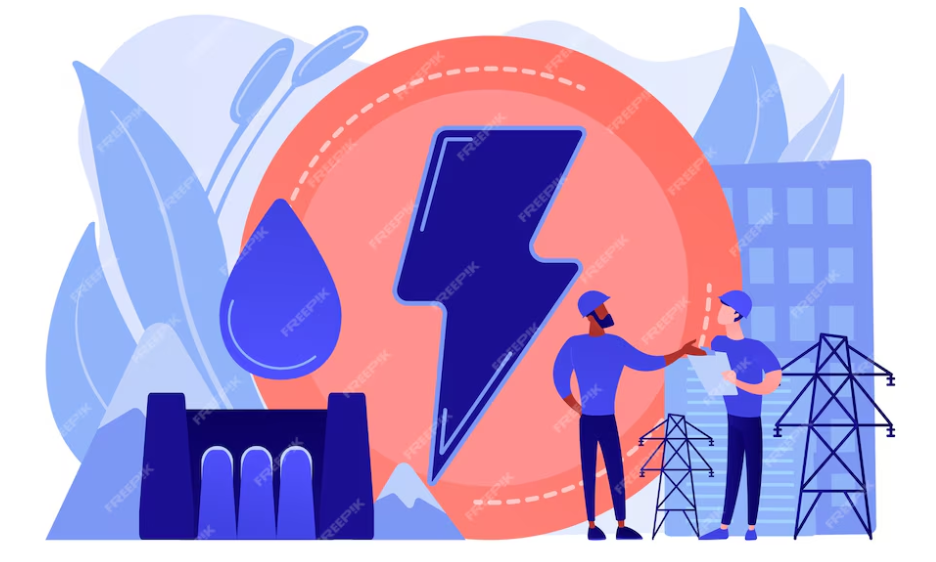
Planning Ahead: Strategies for Dealing with Energy Shortages
In an era characterized by dynamic energy landscapes and potential supply challenges, the need for proactive strategies to address energy shortages becomes increasingly paramount. This blog post uncovers essential tactics for resilience planning, equipping individuals and communities with the foresight and preparedness required to navigate energy shortages with resilience and ingenuity.
Understanding the Dynamics of Energy Shortages
Energy shortages can stem from diverse factors, including extreme weather events, infrastructure vulnerabilities, geopolitical tensions, or supply chain disruptions. Recognizing the multifaceted nature of energy shortages is critical in formulating comprehensive resilience strategies encompassing mitigation, adaptation, and response measures to ensure uninterrupted energy access.
Energy Efficiency and Demand-Side Management
Embracing energy efficiency and demand-side management initiatives constitutes a cornerstone of mitigating energy shortages. By optimizing energy usage, implementing energy-efficient technologies, and promoting demand response programs, individuals and organizations can reduce overall energy consumption, alleviating strain on the energy supply during peak periods and potential shortages.
Diversification of Energy Sources and Supply Chains
Diversifying energy sources and supply chains serves as a strategic imperative in mitigating the impact of energy shortages. Embracing a diverse energy mix, including renewables, natural gas, and energy storage, enhances supply security and resilience. Furthermore, fostering regional energy interconnections and diversifying supply routes reduces vulnerability to localized disruptions.
Leveraging Solar Energy to Combat Energy Shortages
Incorporating solar energy into our everyday lives, especially in sun-rich regions like Boise, Idaho, is a powerful strategy for combatting energy shortages.
By harnessing the abundant solar resources available in Boise, residents and businesses can significantly contribute to diversification and resilience in energy supply. Adopting solar panels reduces reliance on traditional energy sources and aligns with demand-side management by generating clean, sustainable power.
Furthermore, the local shift towards solar energy encourages the development of a greener infrastructure, promoting environmental stewardship while ensuring energy security in Boise and beyond.
Storage Technologies and Resilient Infrastructure
Investments in energy storage technologies and resilient infrastructure bolster resilience against energy shortages. Deploying battery storage systems, pumped hydro storage, and grid-scale storage facilities enables surplus energy accumulation and efficient utilization, ensuring continuity during heightened demand or supply constraints.
Emergency Preparedness and Contingency Planning
Establishing robust emergency preparedness protocols and contingency plans is essential in readiness for potential energy shortages. Proactive measures, such as developing backup power solutions, establishing communication channels for energy-related updates, and conducting scenario-based drills, empower individuals and organizations to respond effectively to energy disruptions while minimizing impact.
Public-Private Partnerships and Collaborative Initiatives
Fostering public-private partnerships and collaborative initiatives strengthens the collective capacity to address energy shortages. Engaging utilities, governmental agencies, industry stakeholders, and local communities in joint resilience planning, knowledge sharing, and resource mobilization cultivates a cohesive and coordinated approach to mitigating energy scarcity and enhancing resilience.
Integrated Risk Assessment and Adaptive Governance
Integrating risk assessments and embracing adaptive governance frameworks enhances the ability to anticipate, assess, and respond to energy shortages. By integrating risk management practices into decision-making processes and fostering adaptive governance structures, policymakers and stakeholders can proactively identify vulnerabilities and implement targeted interventions to mitigate potential disruptions.
Community Engagement and Education
Empowering communities through engagement and education fosters a culture of resilience and resourcefulness in addressing energy shortages. Educating residents on energy conservation, promoting community-based energy initiatives, and facilitating knowledge exchange forums nurture a sense of collective responsibility and preparedness, enabling communities to navigate energy challenges with resilience and innovation.
Conclusion
Proactively preparing for energy shortages is fundamental in safeguarding continuity and resilience amidst evolving energy dynamics.
Individuals and communities can navigate energy shortages with resilience and foresight by embracing energy efficiency, diversifying energy sources, fostering collaborative partnerships, and prioritizing preparedness.
The pursuit of proactive resilience planning lays the groundwork for a future defined by adaptability, sustainability, and collective well-being.




